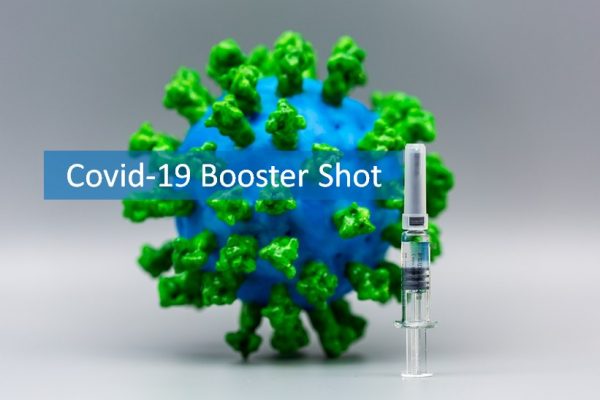
All You Need To Know About Covid-19 Booster Dose
Covid -19 vaccine booster dose is, an additional dose of vaccine that is needed to boost the immunity of those whose immunity is compromised. Getting booster shot will give better protection for those who are vulnerable to disease and helps to achieve the immunity. Many vaccines have booster shots (like mumps, rubella, measles etc.).
People whose immune system is compromised and weak are more vulnerable for covid and if they get sick it could prolong the illness. In order to prevent this, the FDA has authorized a third dose of COVID-19 vaccine for certain immunocompromised individuals.
This week FDA has granted full approval for Pfizer-BioNTech (COMIRNATY) COVID-19 Vaccine. Many countries are already started giving booster shots or preparing to give booster shots. (*If you does not live in USA, check your country’s health organization recommendations regarding booster dose)
Center For Disease Control CDC has answered several questions related to booster dose.
When can I get a COVID-19 vaccine booster?
Not immediately. The goal is for people to start receiving a COVID-19 booster shot beginning in the fall, with individuals being eligible starting 8 months after they received their second dose of an mRNA vaccine (either Pfizer-BioNTech or Moderna). This is subject to authorization by the U.S. Food and Drug Administration and recommendation by CDC’s Advisory Committee on Immunization Practices (ACIP). FDA is conducting an independent evaluation to determine the safety and effectiveness of a booster dose of the mRNA vaccines. ACIP will decide whether to issue a booster dose recommendation based on a thorough review of the evidence.
Who will be the first people to get a booster dose?
If FDA authorizes and ACIP recommends a booster dose, the goal is for the first people eligible for a booster dose to be those who were the first to receive a COVID-19 vaccination (those who are most at risk). This includes healthcare providers, residents of long-term care facilities, and other older adults.
Why is the United States waiting to start offering COVID-19 vaccine boosters?
The COVID-19 vaccines authorized in the United States continue to be highly effective in reducing risk of severe disease, hospitalization, and death, even against the widely circulating Delta variant. However, COVID-19 constantly evolves. Experts are looking at all available data to understand how well the vaccines are working, including how new variants, like Delta, affect vaccine effectiveness. If FDA authorizes and ACIP recommends it, the goal is for people to start receiving a COVID-19 booster shot this fall.
Will people who received Johnson & Johnson’s Janssen (J&J/Janssen) COVID-19 Vaccine need a booster shot?
It is likely that people who received a J&J COVID-19 vaccine will need a booster dose. Because the J&J/Janssen vaccine wasn’t given in the United States until 70 days after the first mRNA vaccine doses (Pfizer-BioNTech and Moderna), the data needed to make this decision aren’t available yet. These data are expected in the coming weeks. With those data in hand, CDC will keep the public informed with a timely plan for J&J/Janssen booster shots.
Can people who received Johnson & Johnson’s Janssen (J&J/Janssen) COVID-19 Vaccine get a booster dose of an mRNA vaccine?
No, there aren’t enough data currently to support mRNA vaccine booster dose (either Pfizer-BioNTech or Moderna) if someone has gotten a J&J/Janssen vaccine. People who got the J&J/Janssen vaccine will likely need a booster dose, and more data are expected in the coming weeks. With those data in hand, CDC will keep the public informed with a timely plan for J&J/Janssen booster shots.
If we need a booster dose, does that mean that the vaccines aren’t working?
No. COVID-19 vaccines are working very well to prevent severe illness, hospitalization, and death, even against the widely circulating Delta variant. However, with the Delta variant, public health experts are starting to see reduced protection against mild and moderate disease. For that reason, the U.S. Department of Health and Human Services (HHS) is planning for a booster shot so vaccinated people maintain protection over the coming months.
What’s the difference between a booster dose and an additional dose?
Sometimes people who are moderately to severely immunocompromised do not build enough (or any) protection when they first get a vaccination. When this happens, getting another dose of the vaccine can sometimes help them build more protection against the disease. This appears to be the case for some immunocompromised people and COVID-19 vaccines. CDC recommends moderately to severely immunocompromised people consider receiving an additional (third) dose of an mRNA COVID-19 vaccine (Pfizer-BioNTech or Moderna) at least 28 days after the completion of the initial 2-dose mRNA COVID-19 vaccine series.
In contrast, a “booster dose” refers to another dose of a vaccine that is given to someone who built enough protection after vaccination, but then that protection decreased over time (this is called waning immunity). HHS has developed a plan to begin offering COVID-19 booster shots to people this fall. Implementation of the plan is subject to FDA’s authorization and ACIP’s recommendation.
For more knowledge regarding booster shot please visit:
https://www.cdc.gov/
https://www.politico.eu/article/vaccine-booster-coronavirus-covid-19-europe-delta-varian-who/
Image credit: Image by pearson0612 from Pixabay (Free for commercial use)
Author: Sumana Rao | Posted on: December 27, 2021
« A Real Christmas Tree and Health Benefit Suggestions to Stay Fit In Pandemic Winter »






















Write a comment